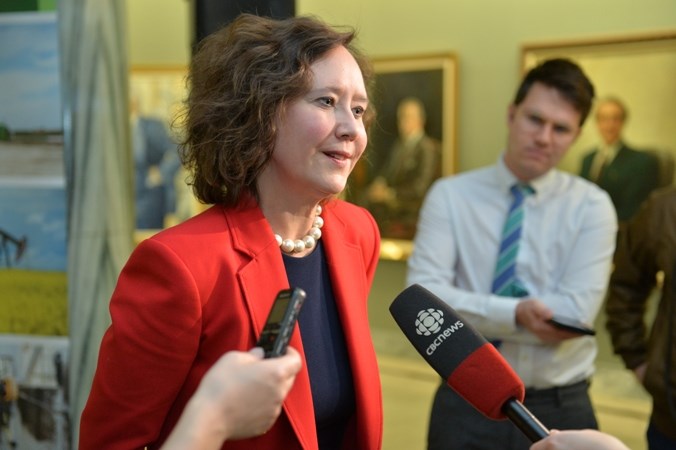Projects are now underway in all oil and gas-producing regions of the province through the Accelerated Site Closure Program (ASCP) that was announced by the provincial government earlier this year.
The program was revealed in May for the abandonment and reclamation of inactive oil and gas wells and facilities, as part of the provincial government’s plan to get Saskatchewan people back to work. The federal government contributed $400 million for the project, which will run over two years.
Bronwyn Eyre, the Minister of Energy of Resources in Saskatchewan, said the first $100 million was allocated to approximately 205 eligible operators back in June. The first bundle of projects was then issued July 16, with a total value of $12 million.
“For the first tranche, there were six producers, and they’re all now in operation with this, and that constitutes … more than $12 million, and then an additional $3 million in work has been packaged and is ready to go, and that adds up to $15 million in operational work to date.”
Several million dollars more worth of work was issued last week.
When the first $100 million was allocated in June, it meant those operators knew the amount that they’re eligible for, she said.
“We feel that that’s been really important, that they have that funding certainty, and that gives them the ability to plan and avoid the first come, first serve approach, which has led to a bit of frustration in some of the other jurisdictions. So we’re glad that we took the time to engage with the sector right from the beginning.”
Under the ASCP, eligible licensees (operators) will use the Integrated Resource Information System (IRIS) to nominate inactive wells and facilities into the program. Each licensee will be assigned a portion of planned expenditures, based on their share of total provincial liabilities for inactive wells and facilities.
Eyre believes the program has been very well received, and she believes it is having a broad, positive impact on the energy sector. The flexibility gives operators the ability to select the types of projects that make sense for their businesses.
The Saskatchewan Research Council, which is administering the program, has received about $1 million in invoices from the service sector for the $12 million worth of work.
The amount of time that it takes to complete one of these projects will vary from well to well, based on components or issues.
“Certainly, even before COVID and before this program, we had a very good record here in Saskatchewan, and there were new regulations that we had put in place as the Ministry of Energy and Resources and the government to streamline this kind of work, and operators had done a lot of work on abandonment despite the economic downturn,” said Eyre.
She pointed out that about 2,000 wells were cleaned up in 2019, which she said was up 40 per cent since 2018.
Saskatchewan has around 40,000 inactive wells, but only about 165 wells are orphaned. Those are wells in which the company has gone bankrupt. Inactive wells are those that could theoretically be brought back online.
“Contrary to what the prime minister suggested when he announced this program back in May, leaking wells don’t dot the landscape here in Saskatchewan and they didn’t dot the landscape here in Saskatchewan,” said Eyre.
The $400 million in federal funding was appreciated, and Eyre believes it’s sufficient for the accelerated well program.
The provincial government estimates that 2,100 jobs will be created through the program. Only Saskatchewan-based companies are eligible to do the work.
“Obviously the COVID period was a very difficult time. I remember talking to service sector people throughout those months, and they were telling me that if something didn’t give, they would have to be laying off people, or more people. Obviously it wasn’t a very happy time for the sector and it was difficult to hear some of the stories coming out of the sector.
“We really wanted to get the abandonment program right, which was the big summer to do project, and get those service sector people back to work.”




